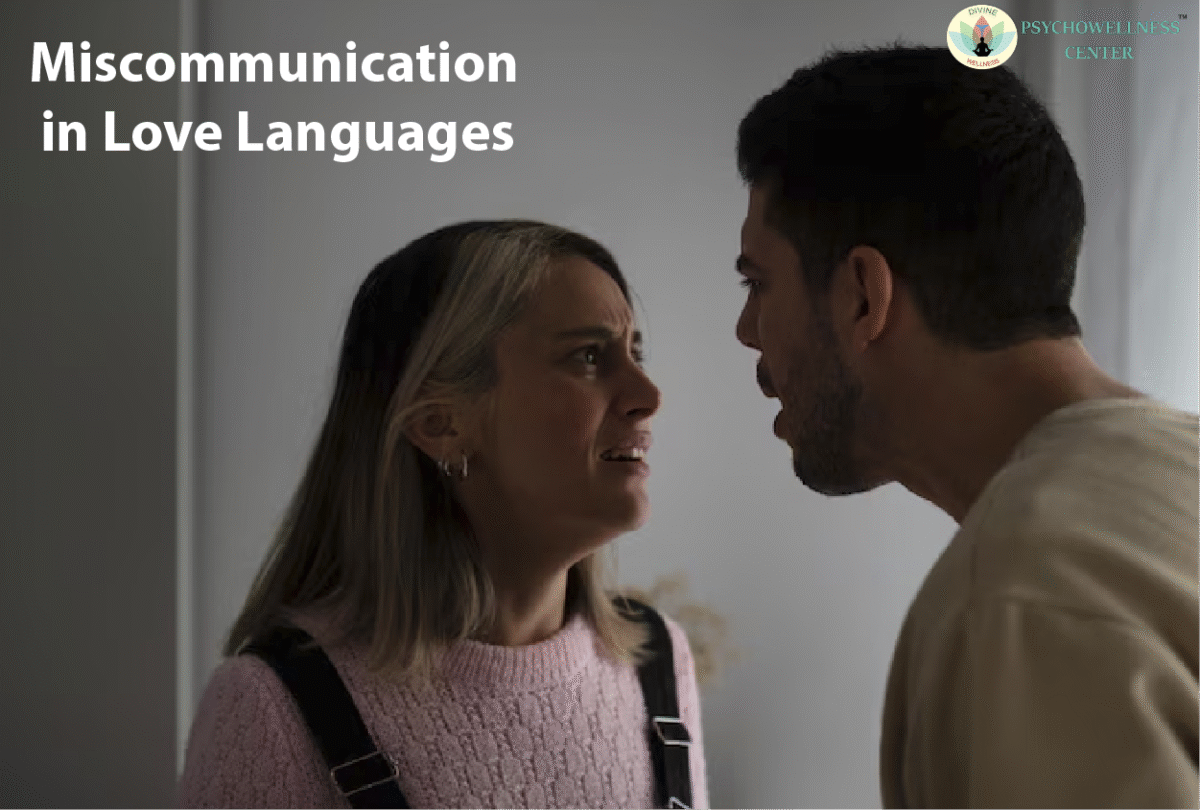Love is a beautiful, transformative force, yet even the strongest connections can falter when partners don’t “speak the same language.” Not linguistically, but emotionally, through what Dr. Gary Chapman famously termed love languages. Affirmation words, spending quality time together, & receiving gifts are some ways that individuals show and experience love.
Understanding your own and your partner’s love language can deepen emotional intimacy and prevent misunderstandings. But when these languages clash or go unspoken, miscommunication may arise not from a lack of love, but from a mismatch in how that love is expressed and perceived.
In this blog, we’ll explore how mismatched love languages can silently erode relationships, identify common pitfalls, and offer practical tools to bridge the emotional communication gap.
Understanding Love Languages and Their Significance
Each one has a primary love language, a way in which they deeply feel loved. Here’s a quick refresher:
- Words of Affirmation: Verbal expressions of encouragement, gratitude, and affection.
- Physical Touch: Affection through hugs, cuddling, and holding hands.
- Acts of service: These are actions that improve or ease the quality of life.
- Receiving Gifts: Tangible tokens of love and thoughtfulness.
The issue isn’t about whether love is present, but whether it’s felt.
Imagine preparing a surprise dinner (Acts of Service), only to hear, “Why didn’t you just sit with me?” (Quality Time). Your effort was genuine, but it didn’t meet your partner’s emotional needs. That’s the heart of love language miscommunication.
Common Pitfalls in Love Language Miscommunication
- Assuming Your Way is the “Right” Way
A person whose language is Physical Touch may constantly show affection physically, while their partner who values Acts of Service feels unseen because tasks are piling up. The result? Both feel unappreciated.
- Overlooking Silent Needs
Miscommunication isn’t always vocal. Sometimes it’s in sighs, irritability, or withdrawal. If your partner says, “You don’t care,” despite your efforts, it’s not about effort it’s about alignment. Their emotional tank may be running dry.
- Clashing Love Languages Under Stress
Stress magnifies these differences. A partner who needs Words of Affirmation may become clingy or overly talkative. Meanwhile, someone who values Acts of Service might clean the whole house in silence. Both are crying out for connection, just in different dialects.
- Mistaking Love for Obligation
If a love language isn’t appreciated, its expression might be misinterpreted. For instance, someone who values Receiving Gifts might be viewed as materialistic by a partner who prefers Quality Time. This misunderstanding can lead to resentment, shame, or feelings taken for granted.
The Emotional Toll of Feeling Unseen
When love languages are mismatched, it can lead to emotional disconnect. Common consequences include:
- Resentment: “I give everything, and it’s still not enough.”
- Isolation: “I feel alone, even when we’re together.”
- Disconnection: “We’ve stopped trying.”
- Conflict: “You just don’t get me.”
Even in loving relationships, low motivation, emotional fatigue, or dissatisfaction can arise when needs are unmet, often leading people to seek help through stress counselling or relationship therapy.
How to Bridge the Emotional Gap
- Discover Each Other’s Love Language:- Take the official quiz by Dr. Chapman or observe your partner. What do they request most? Compliments, help, closeness? A trained counsellor for relationships or person-centred therapy can also help uncover deeper emotional needs.
- Have Open, Gentle Conversations:- Instead of blaming, use “I” statements: “I feel connected when we take a walk and talk. Could we do that more?”Communicate without criticism. You’re not fixing your partner, you’re showing them how to love you better.
- Practice Love Languages That Aren’t Natural to You:- Love languages are like foreign dialects; fluency takes practice. If you’re not used to Words of Affirmation, try writing a note. If Physical Touch isn’t your default, a warm hug at the end of a long day can make a world of difference.
- Stay Curious, Not Critical:- When your partner’s efforts miss the mark, resist the urge to judge. Ask instead: “What did you hope to say?” Curiosity creates emotional safety and reduces defensiveness.
- Check In Regularly
Life phases affect our needs. A new job, parenthood, or health challenges may shift your love language. Emotional check-ins weekly or monthly keep the connection alive and evolving. Consider involving a therapist near me if you need support realigning your relationship dynamic.
Conclusion
Love languages aren’t fixed rules they’re dynamic bridges to deeper understanding and connection. They remind us that love is not only about what we offer, but also about how we listen, respond, and nurture. Expressing affection in ways that resonate with others strengthens bonds and builds trust. Miscommunication doesn’t necessarily mean failure; rather, it offers a powerful opportunity to grow, learn, and rebuild with greater empathy and clarity. Love thrives when we choose to understand before we expect to be understood.
Learning to love in a way that your partner understands may require mindfulness and compassion. Whether through Mindfulness Therapy, anger management strategies, or supportive relationship counseling from the best relationship counselor in Delhi at Psychowellness Centre, healing is possible.
And when we finally say “I love you” in the language our partner understands?
We don’t just speak we connect.
Contributed by Ms. Srishti Jain, Counselling Psychologist
This blog was posted on 19th June 2025
References
- Chapman, G. (2015). The 5 love languages: The secret to love that lasts (Updated ed.). Northfield Publishing.
- Gottman, J., & Silver, N. (1999). The seven principles for making marriage work. Crown Publishers.
- Johnson, S. (2008). Hold me tight: Seven conversations for a lifetime of love. Little, Brown Spark.

